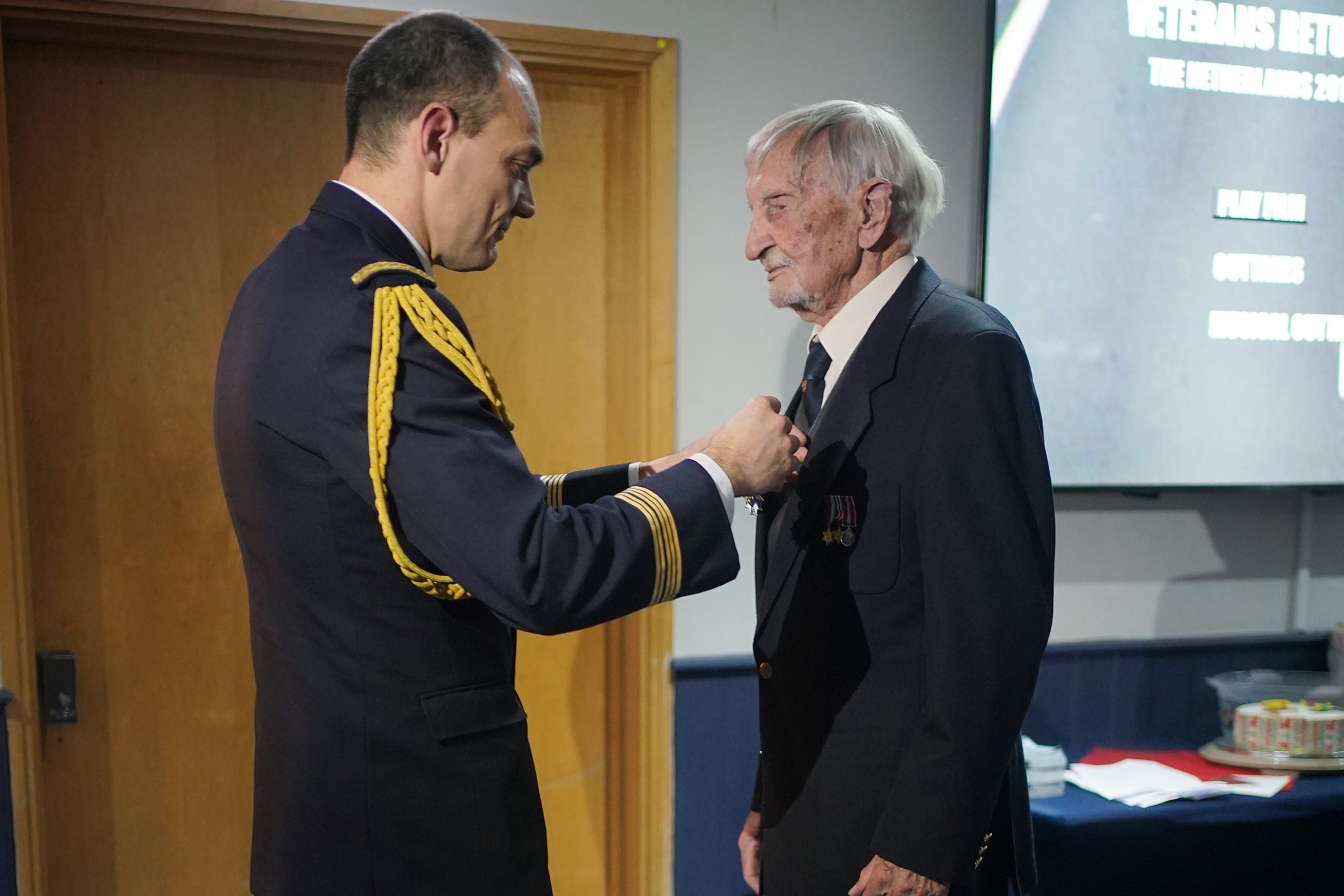D-Day veteran, 100, given Legion of Honour medal in surprise ceremony
David Morgan landed on Utah beach five days after D-Day to help establish a wireless communication link back to the London War Office.

A 100-year-old D-Day veteran has been surprised with the highest French medal.
David Morgan served as a Warrant Officer II with the Royal Signals and landed on Utah beach five days after D-Day to help establish a wireless communication link back to the London War Office.
On Thursday, he walked up to French Colonel Xavier Ravel, who pinned the Legion of Honour to his lapel to commemorate his part in the operation nearly 80 years ago.
Napoleon Bonaparte established the award in 1802 and it remains the highest military and civil medal in the country, and Mr Morgan had no idea he would receive it.
This is the proudest moment of my life actually, I have been wanting this for a long time and great friends have been helping me to get it
After receiving the medal, he kissed the cheek of Arlette Gondree, who remembers her parents spying on the German soldiers that would drink in her family’s Normandy cafe.
An emotional Mr Morgan, who left the Army after 22 years of service, told the crowd: “[This is] the proudest moment of my life actually, I have been wanting this [award] for a long time and great friends have been helping me to get it.
“I never thought I would get it in my life and I’m the proudest person here tonight – thank you.
“It’s a great evening, I’m enjoying it and I hope you are too.”
He was one of 10 Second World War veterans among around 250 people who gathered to enjoy Christmas lunch at Millwall Football Club on Thursday.
During the afternoon, organised by Taxi Charity for Veterans, which is run by black cabbies, two attendees were applauded for celebrating their 100th birthdays this year.
Speaking after receiving the award and describing his proudest moment of the war, Mr Morgan said: “We’d just crossed the Rhine when we got news on our communications systems that the war was over – that was probably the proudest moment, I’d got through it, I was still alive, the war was over.”
He added: “I wasn’t charging at the beach, attacking machine guns persons, we were dealing with communications – my proudest moment is tonight, it really is.”
His stepdaughter Alex Buhl, 53, a hospital worker in Ireland, said Mr Morgan was a great support to her.
She said: “It’s just amazing, he’s my late mum’s husband but we got so close when my mother died, he’s such a special person in my life.
“If I was struggling with anything, he was there, he was absolutely amazing, but he never gets involved – he always leaves it up to you.”
Ms Gondree now lives in Warwickshire but remembers Nazis drinking in her parents’ Cafe Gondree in Benouville, Normandy, when she was just four.
She said: “When my parents bought the cafe it was a very peaceful village, then suddenly the Germans arrived – there were 54 Germans there in the village.”
Ms Gondree lived with her sister at the time and added: “My parents actually passed on information to British spies.
“We were two little girls, we lived in fear because the cafe was used as a cafe by the Germans, the Germans used to come to drink.
“My parents were working as secret spies while the cafe was being used. We lived in fear because of that.
“We had hardly any clothes, we had no supplies.”
The British eventually turned Cafe Gondree into a hospital and her mother, a trained nurse, helped out.
She said: “It was littered with wounded or dying soldiers.”
Bookmark popover
Removed from bookmarks